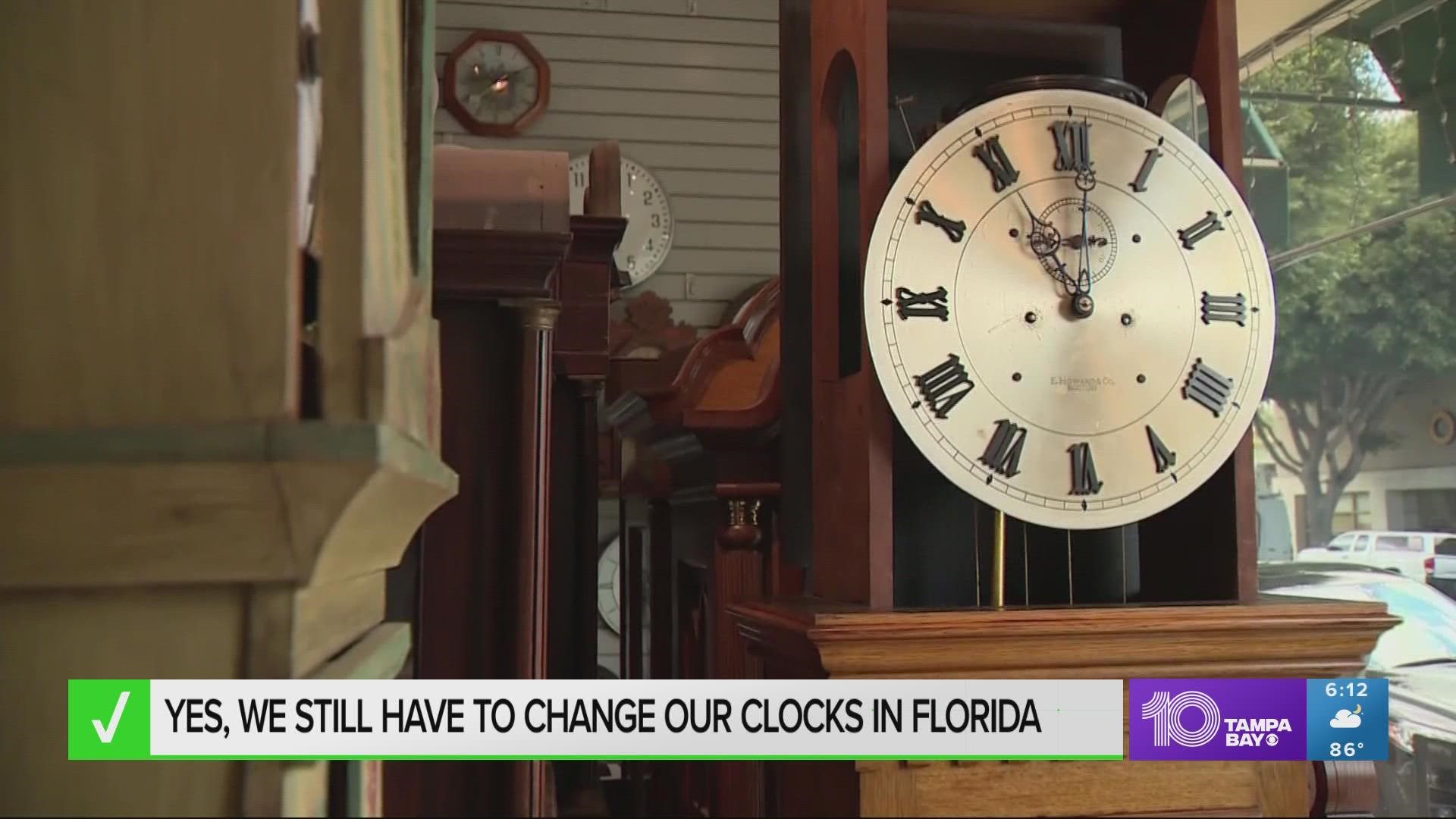ST. PETERSBURG, Fla. — Daylight saving time ends this weekend, which means we "fall back" one hour on Sunday morning.
The time change officially happens at 2 a.m. on Sunday, Nov. 6.
But Florida lawmakers voted to "lock the clock" in 2018 to keep daylight saving time permanent in the state.
So why are we still doing this time change?
THE QUESTION
Do we still have to change our clocks in Florida even though lawmakers voted to make daylight saving time permanent?
THE SOURCES
THE ANSWER
Yes, despite Florida law, we still have to "fall back" and end daylight saving time because congressional approval is required. It hasn't happened yet.
WHAT WE FOUND
Florida lawmakers approved a bipartisan measure called the Sunshine Protection Act in 2018 to make daylight saving time permanent.
But this change requires federal approval, which hasn’t happened.
That's because federal law only allows states to opt-out of daylight saving time and permanently remain on standard time. But under the Uniform Time Act of 1966, states that want to stay on daylight saving time permanently – like Florida – need congressional approval.
Unless Congress takes action, the time changes will continue.
So what's happening in Congress?
The U.S. Senate unanimously approved the Sunshine Protection Act, which was reintroduced in 2021 by Sen. Marco Rubio, R-Fla., on March 15, 2022. Rubio previously introduced the Sunshine Protection Act in 2019.
The legislation would make daylight saving time the permanent standard time throughout the country starting on Nov. 5, 2023. That means we wouldn’t change our clocks, or “fall back,” in November and would have a full year of daylight saving time instead of only eight months.
But the bill has some hoops to jump through before daylight saving time is the norm for everyone.
As of Nov. 1, 2022, the bill hasn’t moved forward in the U.S. House. The bill needs House passage before President Joe Biden could sign it into law.
That means people in the U.S. that observe daylight saving time will still move their clocks back one hour on Nov. 6, 2022.
What's the deal in other states?
Daylight saving time has proven to be more popular than standard time and Florida isn’t alone in trying to keep daylight saving time permanent.
In the past five years, 19 states have either enacted legislation or passed resolutions to stay sprung forward on daylight saving time all year long, the NCSL says.
Congress in 2005 lengthened daylight saving time to start on the second Sunday of March and end on the first Sunday of November, but it has stopped short of allowing states to stay on daylight saving time year-round.
Currently, two states, Arizona (except the Navajo Nation) and Hawaii, do not observe daylight saving time. U.S. territories American Samoa, Guam, the Northern Mariana Islands, Puerto Rico and the U.S. Virgin Islands also do not observe daylight saving time, according to the National Conference of State Legislatures (NCSL).
VERIFY's Megan Loe, Nate Hanson and Brandon Lewis contributed to this report.

